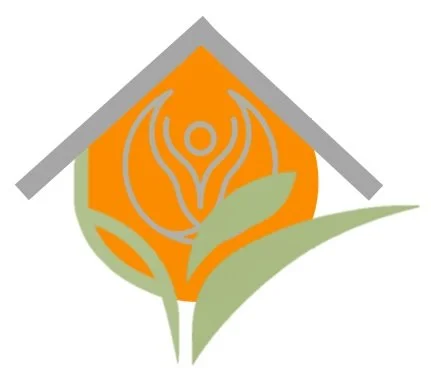A Complement to Feng Shui: Aligning Your Home and Garden with Your Human Energy
The way our environment affects our well-being is a concept as old as humanity itself. For centuries, Eastern philosophies have offered powerful frameworks for creating harmony in our spaces, with none more well-known than Feng Shui. Its principles of balancing energy and aligning elements have guided design for generations. It’s a beautiful, sophisticated system that, at its heart, seeks to align our surroundings with the natural flow of the universe.
As a systems thinker and a Certified Aging in Place Specialist, I’ve been asked how my approach to thriving in place—through the concept of Human Energy —differs from or relates to Feng Shui. The short answer is this: while both seek to create harmonious, high-energy spaces, Feng Shui begins with the universal laws of cosmic energy, or chi, while my approach begins with the individual’s or families’ unique reality.
Feng Shui provides a set of principles for creating an ideal environment. My work provides a highly personalized, practical system for aligning that environment with the four currents of your specific life. Both are powerful, but when combined, they create a synergy that can transform your home and garden into a true sanctuary.
A Brief Look at Feng Shui
At its core, Feng Shui is a practice that aims to balance the flow of chi (life force energy) in a space. It uses a series of principles—such as the five elements (wood, fire, earth, metal, water) and the Bagua map—to guide the placement of objects, furniture, and structures. The goal is to create a home that is an optimal conduit for energy, promoting health, wealth, and happiness for its inhabitants. It is a philosophy rooted in the idea that a properly oriented and arranged space can bring the cosmic energy of the world into your home.
This is a profound and elegant way of viewing our surroundings. However, for a person navigating the real-world complexities of aging in place, a universal ideal for energy flow may not always be the most practical solution. A perfect arrangement for chi might not be the safest or most accessible arrangement for an individual’s physical reality. This is where my approach bridges the gap.
The Four Energies: A Different Kind of Flow
My work, grounded in Psychology and a deep understanding of human systems, focuses on the energy that flows through us as individuals. The Human Energy Concept is a practical lens through which we evaluate and intentionally shape our environment to support our Physical, Cognitive, Emotional, and Spiritual Energies.
Physical Energy: This is about your body's ability to move safely and independently.
Cognitive Energy: This is your mental acuity, clarity, and focus.
Emotional Energy: This is your capacity for joy, connection, and resilience.
Spiritual Energy: This is your sense of purpose and connection to something greater than yourself.
My approach isn't about conforming your home to an external philosophy; it's about customizing your environment to nourish your specific energy needs today and tomorrow.
Complementary, Not Conflicting
The beauty is that my approach and Feng Shui can work in perfect harmony. Many of the principles of Feng Shui naturally support our four energies:
The Power of Placement: Feng Shui's emphasis on placing your bed in a commanding position to promote a sense of security is an excellent way to support Emotional Energy and improve sleep, which in turn fuels your Physical Energy.
Clearing the Clutter: Feng Shui teaches us to clear clutter to prevent stagnant chi. My work echoes this, but with a different emphasis: decluttering and organizing spaces is a powerful way to increase safety and reduce mental stress and improve focus, directly enhancing your Cognitive Energy. This isn’t just about the home’s energy; it’s about the clarity of your mind.
Connection to Nature: Both approaches recognize the power of nature. Feng Shui might suggest placing a water feature or plants in a specific corner to enhance a certain element. My approach encourages you to bring the outside in—with plants, natural light, and views of the garden—to fuel all four of your energies, especially the Spiritual, by reminding you of your connection to the earth.
The Key Difference: My Approach is Rooted in Individuals
This is where the distinction becomes most critical. While Feng Shui offers a universal set of best practices, my work is fundamentally personalized to the individual's of families’ needs.
For example, a traditional Feng Shui approach might not account for the specific physical limitations of an aging individual. My work, informed by my Certified Aging in Place Specialist (CAPS) training, goes beyond the universal flow of chi to consider the individual’s physical body first. A well-lit path might be good for universal energy flow, but a path with a specific kind of non-slip surface and handrail is a matter of life-and-death for someone with mobility issues. The placement of a bed might be "good" for chi, but a bed that is too low to the ground is a physical risk that needs to be addressed immediately.
The same principles apply to the garden. While Feng Shui may guide the placement of a gazebo or a pond, my approach prioritizes accessibility with raised garden beds and non-slip paths, ensuring your garden remains a source of joy and not a source of physical stress.
My work is an evolution of these timeless philosophies. It takes the profound understanding that our environments matter and makes it highly practical, actionable, and deeply personal. It starts with you—your energy, your needs, your challenges—and uses your home and garden as a tool to help you thrive. It’s not about finding a perfect cosmic alignment; it’s about creating a perfect life alignment.
How can your home and garden best serve your unique energy signature today?
